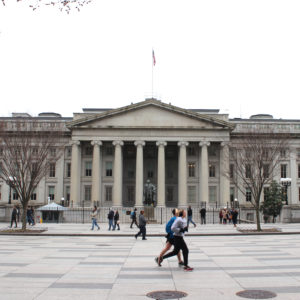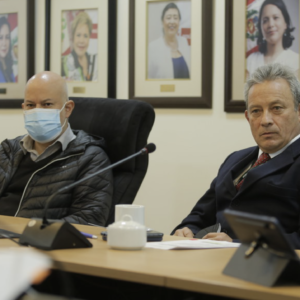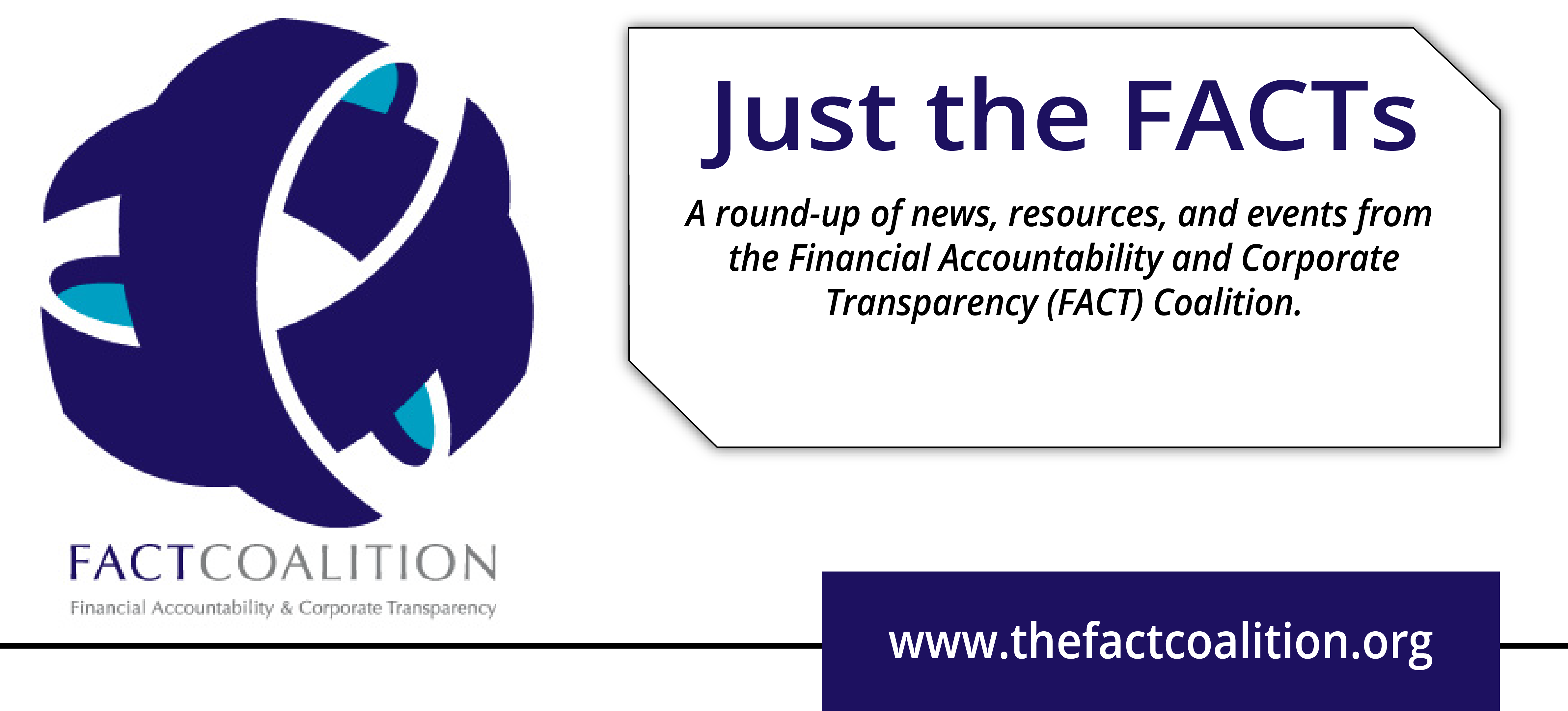“Just the FACTs” is a round-up of news stories and information regarding efforts to combat corrupt financial practices, including offshore tax haven abuses, corporate secrecy, and money laundering through the financial system.
Send feedback or items for future newsletters to Thomas Georges at tgeorges@thefactcoalition.org
Happy New Year! 2023 ended with a bang, with Treasury rolling out the final rule required to begin beneficial ownership reporting under the Corporate Transparency Act, the passage of major new anti-corruption legislation in the annual defense spending package, and revised timetables from the Administration for long-awaited new anti-money laundering regulations.
2024 will be a big year for FACT: beyond our work on international tax fairness, multinational corporate tax transparency, and domestic anti-money laundering reforms, the Coalition will be expanding its work at the intersection of illicit finance and environmental crime.
To that effect, we are delighted to welcome Julia Yansura to the FACT Secretariat team in the position of Program Director for Environmental Crime and Illicit Finance! Julia comes to FACT with years of experience covering nature crimes in Latin America, most recently holding the position of Program Director for Latin America and the Caribbean at FACT-member Global Financial Integrity.
Please join us in welcoming Julia to the team, and onward into 2024!
Here is the State of Play
Beneficial Ownership Reporting Begins Under Corporate Transparency Act, In Generational Anti-Money Laundering Breakthrough

In the culmination of nearly a decade of advocacy by diverse stakeholders to end the abuse of anonymous entities in the U.S., the Treasury Department began accepting filings regarding the true, “beneficial” owners of many American companies under the Corporate Transparency Act (CTA) on Monday, January 1. In a statement, Treasury Secretary Janet Yellen said that the launch of the new beneficial ownership registry “marks a historic step forward to protect our economic and national security.”
The road to an effective U.S. beneficial ownership transparency regime – hailed by many advocates and anti-money laundering professionals as perhaps the single most important domestic financial transparency reform in a generation – has been a long one. Even after the Corporate Transparency Act became law in January 2021, the years-long regulatory process of implementing Treasury’s new database was only completed with the release in December of a final rule governing access to collected information for authorized users.
While FACT is still analyzing the final access rule, its already clear that Treasury has incorporated necessary changes to improve effective access for financial institutions and state, local, and tribal authorities. With this rule and others that came before, Treasury has largely been successful in faithfully implementing the statute passed in 2021. A previous rule that defined reporting companies and their obligations under the law was largely praised by advocates as a faithful implementation of the statute of the CTA. The Financial Crimes Enforcement Network (FinCEN), the bureau of the Treasury responsible for designing and overseeing the new beneficial ownership database, also made critical changes last year to a proposed reporting form following outcry from FACT and other advocates, removing fields that would have rendered reporting functionally optional under the law.
With Treasury’s beneficial ownership database now online and accepting reports, pre-existing covered entities have until January 1, 2025 to submit their ownership information, while new entities must file within 90 days of formation. FinCEN has provided guidance and explanatory materials for small businesses pertaining to their new reporting obligations, including through FAQs and the recently-released Small Entity Compliance Guide.

Groundbreaking Anti-Bribery Bill Signed Into Law
The FACT-endorsed, bipartisan Foreign Extortion Prevention Act (FEPA) was signed into law as a part of the annual defense spending bill late last month, introducing new authorities for the Justice Department to prosecute foreign officials that demand bribes from American citizens or companies.
In a statement celebrating the bill’s passage, Transparency International US’s (TI-US) Scott Greytak praised FEPA as “a powerful new tool for fighting foreign corruption at its source and for protecting Americans and American businesses working abroad.” TI-US, a FACT member, was integral to the law’s enactment, providing key technical input into the legislation and building a broad alliance of supporters including business, national security, and civil society organizations. FEPA was first introduced in the Senate by Senators Sheldon Whitehouse (D-RI) and Thom Tillis (R-NC), and in the House by Representatives by Reps. Sheila Jackson Lee (D-TX) and Joe Wilson (R-SC), before ultimately passing through the National Defense Authorization Act (NDAA).
Prior to FEPA, only providing or offering a bribe to a foreign official – or the so-called “supply side” of foreign bribery – was considered a crime under U.S. law. By criminalizing the “demand side” of bribery, the law could dramatically increase the cost associated with extortionary business practices targeting U.S. companies abroad.

Treasury to Advance Long Awaited Anti-Money Laundering Reforms in Early 2024
As the U.S.-hosted 10th Conference of States Parties to the UN Convention Against Corruption (UNCAC COSP10) began in Atlanta last month, the Treasury Department provided a much-needed update on its ongoing efforts to implement important domestic anti-money laundering reforms central to the 2021 Strategy on Countering Corruption, including new rules cracking down on dirty money in the U.S. real estate and private investment markets.
Per a recent Treasury fact sheet, a draft rule – known as a Notice of Proposed Rulemaking (NPRM) – requiring enhanced transparency for many residential real estate transactions is now expected in “early 2024.” Treasury also confirmed that it is considering action to curb money laundering threats through commercial real estate through a separate rulemaking process, echoing warnings from FinCEN that sanctioned Russian oligarchs and other illicit actors have sought investments in the sector. A recently released federal regulatory agenda indicates that a proposed rule on commercial real estate could be released as early as September.
Draft rules establishing anti-money laundering obligations for certain investment advisers, meanwhile, are now expected in Q1 2024. While FACT had previously called for a preliminary notice on a rule for investment advisors to be issued by the end of 2023, Treasury’s commitment to release a full draft rule in Q1 suggests that final regulations may be completed in 2024.
In a statement issued during the UNCAC in December, FACT executive director Ian Gary called on Treasury to swiftly implement both sets of reforms, saying that “As the world’s largest economy and top supplier of financial secrecy, the United States has not only an interest, but an obligation to make sure that the proceeds of global corruption don’t find safe haven in our markets.”
Latest from FACT

Bipartisan Bill Would Give U.S. Prosecutors New Tools to Combat Nature Crime
FACT welcomed the bipartisan, bicameral introduction of the Fostering Overseas Rule of Law and Environmentally Sound Trade Act (FOREST) Act, which would establish an overarching framework for the United States to deter commodity-driven illegal deforestation around the world and make illegal deforestation a predicate offense for money laundering.
From the press release: “The U.S. is a significant market for imported commodities and associated products linked to deforestation and human rights abuses, such as palm oil, cocoa and cattle,” said Susanne Breitkopf, Deputy Director of the Forest Campaign of the FACT-member Environmental Investigative Agency. “This groundbreaking bipartisan bill would establish the U.S. as a leader in global efforts to halt deforestation and associated environmental and financial crime.”

In the Wake of UNCAC, U.S. Reforms Must Tackle Illicit Finance Fueling Corruption and Nature Crime
FACT policy fellow Sofia Gonzalez writes that, despite the lack of a dedicated resolution on environmental crime at UNCAC COSP10, there remain critical policy priorities the United States must implement to help deter these crimes globally.
“It is imperative both for the U.S. to get its own affairs in order, as well as for the world to prioritize environmental crimes within the framework of the UNCAC,” she writes. “By leveraging its influence, the U.S. has the power to shape and bolster global efforts aimed at combating corruption by tackling environmental crimes.”

FACT Policy Fellow Sofia Gonzalez interviewed Ricardo Soberón, the former president of Peru’s National Commission for Development and Life without Drugs (DEVIDA) on his work to combat drug trafficking and money laundering associated with narcotics.
From the interview: “My analysis has revealed the inextricable link between illicit gold and cocaine production…Given the challenges posed by gold, cocaine, and other illicit activities and the inherent weaknesses in the Colombian and Peruvian states, I recommend advocating for a more effective law enforcement strategy. Rather than targeting the miners themselves, who often are local people seeking economic opportunity, law enforcement emphasis should shift to companies, their directors, and exporters.”
FACT in the News

Transparent Banking in the United States Could Help Save the Amazon
Read FACT executive director Ian Gary’s recent letter to the editor in the Washington Post calling attention to the role that U.S. financial secrecy plays in enabling the environmental degradation of the Amazon. The letter highlights recommendations made in FACT’s latest report, Dirty Money and the Destruction of the Amazon, including ensuring full and faithful implementation of the Corporate Transparency Act and passing the recently introduced FOREST Act.
“The United States can be a partner in staving off the destruction of the Amazon, in part, by cleaning up its own house,” writes Gary. “As the world’s largest economy and premier supplier of financial secrecy, the United States must undertake comprehensive reforms to deny financial haven to criminals who would degrade the Amazon.”

Congress Passed a Money Laundering Law. Interest Groups Are Still Fighting It
FACT government affairs director Erica Hanichak was quoted in coverage of the recently-implemented Corporate Transparency Act by the New York Times’ Kate Kelly.
While some business groups have attempted to paint the CTA’s reporting requirements as onerous and potentially expensive, the reality of the law is starkly different: “There’s been a lot of scaremongering,” said Hanichak. “These are really simple pieces of information for most small businesses to track down and find.”

US Flags Early 2024 for New Rule Targeting Real Estate Money Laundering
FACT executive director Ian Gary was quoted in coverage of Treasury’s updated anti-money laundering agenda by Reuters’ Chris Prentice and Luc Cohen.
“This long-delayed step would plug a gaping loophole in our anti-money laundering rules to make sure that drug traffickers, Russian oligarchs, and environmental criminals can’t hide their wealth in U.S. real estate,” said Gary.
Recent and Upcoming Event

Watch: UNCAC COSP 10 Special Event – Forest Loss and Corruption
FACT government affairs director Erica Hanichak appeared alongside a panel of government officials and civil society experts to discuss the linkages between forestry crimes and corruption during UNCAC COSP10. In her remarks, Hanichak focused on the measures that large market economies can put in place to deny safe haven for environmental criminals and their funds, including through unveiling the true owners of anonymous shell entities and ensuring transparency in high-value asset markets such as real estate.
From her remarks: “Nature crimes and corruption are not crimes of passion, they are crimes of profit. This is exactly why combating illicit finance that fuels forest loss is so crucial, and it really is a transnational problem that requires international cooperation…A lot of this money finds its way to the global north – to large economies with swiss-cheese style loopholes in their anti-money laundering systems that invite dirty money in – and fuels these crimes happening in local jurisdictions.”
About the FACT Coalition

